What is Nose Surgery?
Nose surgery, also known as Rhinoplasty, in Boston and Worcester, Massachusetts, is a procedure that improves the proportion and harmony of the face through correcting the size and/or shape of the nose. This procedure can also be done to correct medical issues, such as impaired breathing due to structural defects like a deviated septum.
Am I a good candidate for nose surgery?
Ideal candidates for nose surgery are physically healthy men and women whose nose is completely done growing, and individuals that have realistic goals for the surgery. Individuals who smoke may not be ideal candidates for any surgical procedure.
Rhinoplasty Patient #23
A woman in her late teens who was bothered by the shape of her nose. Her main concern was a dorsal hump and her second concern was the shape of her nasal tip. The third concern was her nose being crooked. She is shown before and again, one year after an open rhinoplasty.
Discussion: Studies show that the happiest patients after rhinoplasty are those with a dorsal hump, possibly because the correction is seen more quickly. Tip refinement continues to improve for 3 years after surgery and is impacted by the thickness of the nasal skin- if the skin is thick it is difficult to see any detailed shape changes. Her skin is relatively skin and as the swelling diminishes the created shape is better revealed.
It is difficult to fully correct a deviated nose because of residual forces in the nose that want to return to the original bend of the cartilage. We were fortunate in her case to make the nose dramatically straighter, but this is not always predictable or possible.
Her chin is “weak”, falling behind an imaginary line dropping down from the lips (“Riedel’s line” which connects the most prominent points of the upper and lower lips and is a good guide to the most aesthetic projection of the chin) and her facial balance could be improved even further with a chin implant.
Rhinoplasty – Patient 133
A woman in her early 20’s who is bothered by a dorsal hump and drooping of the tip when she smiles. She also has some deviation of her nose. She is shown before and again, 4 months after an open rhinoplasty. The open rhinoplasty places an incision across the base of the nose that fades with time and allows us to open up the nose more completely for surgery and add more structure and precision to the nose. She is thrilled with her improvement and we can expect the tip to continue to gain in refinement over the next 3 years as the swelling continues to resolve.
Rhinoplasty – Patient 132
A woman who first came to see us when she was 18 and had an open rhinoplasty an a chin implant. She came back to see us 9 years later, because the implant shifted slightly, which is more common when an implant is place through an incision inside the lower lip. I replaced this with a new implant placed through an incision under the chin, which allows us to anchor the implant so it will not move. She is shown then 6 months after this second procedure. So the postop views are 9 years after the rhinoplasty and 6 months after the chin implant replacement.
Rhinoplasty – Patient 131
A woman in her mid 20’s who is bothered by a dorsal hump and by fullness of the tip. She is shown before and again, 6 weeks after an open rhinoplasty. The tip will continue to improve in refinement over the next 3 years as the swelling slowly decreases and unveils the structure that we have created at her tip. She is already thrilled with her early result. She has a “weak chin” with her chin point being behind “reidel’s line”, a line drawn connecting the lips. But she has some facial asymmetry and was concerned that a chin implant might draw more attention to this.
Update: Our patient is now seen 4 months after surgery. Swelling continues to diminish and the tip has gained in refinement. Swelling in the tip will typically continue to improve for 3 years after rhinoplasty
Rhinoplasty – Patient 130
A woman in her mid 20’s who is bothered by a dorsal hump as well as a nose which is too long for her face. She has issues with breathing as well with internal valve collapse. She is shown before and again, 6 weeks after an open rhinoplasty with septoplasty and placement of spreader grafts to correct her “vestibular stenosis” or collapse of the nasal valve area. Spreader grafts are a kind of internal “breasth rite strips” . Her breathing is corrected and she loves the improved but natural appearance of her nose after surgery.
One Year Update: The nose continues to gain in refinement as the swelling in the tip slowly diminishes for the first three years after surgery.
What are my options for nose surgery?
There are two main techniques used for rhinoplasty today: the open procedure and the closed procedure. A closed procedure involves hidden incisions made inside the nose, while an open procedure entails an incision outside of the nose, or along the slim strip of tissue that separates the nostrils, called the columella.
Depending on the patient’s goals for the outcome of the surgery, bone or cartilage can be removed to reduce the size of the nose, while cartilage grafts may also be required.
What should I expect during recovery?
Typically, it takes about 10 to 14 days for most of the swelling and bruising to heal following nose surgery, and a nasal splint is often placed for the first week. Bruising under the eyes and brief nausea from anesthesia are normal side effects. Patients are advised to avoid straining, bending and lifting, as well as wearing eye glasses immediately after the procedure.
In most cases, patients return to work within two weeks, once the bruising has depleted. However, more strenuous activities should be avoided for about six weeks. Although the results are immediate after surgery, the overall contour continues to improve for two to three years. As with any invasive procedure, there are risks involved with nose surgery. Ruptures of small surface vessels on the nose, infections, and poor wound healing are all complications that can arise.
How long will results last?
Rhinoplasty results are permanent. However, rhinoplasty revision surgery is also an option.

“Dr. Hall and his staff are great. They are friendly and made me feel comfortable. Dr. Hall is very knowledgeable and put me at ease regarding my surgery.”
Real Patient Ratings™ Review
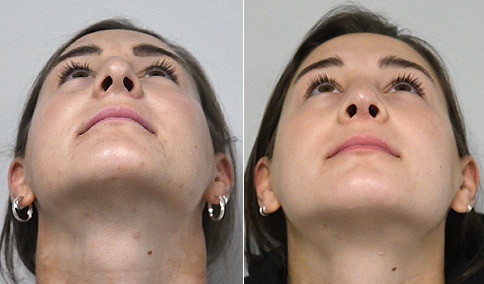
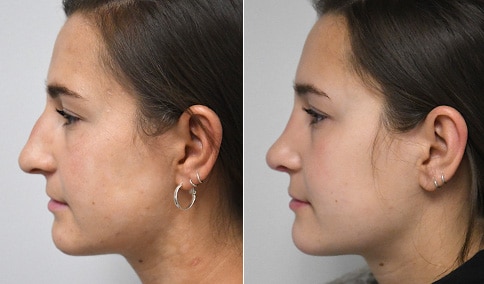
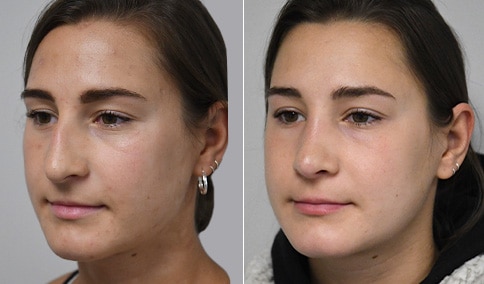
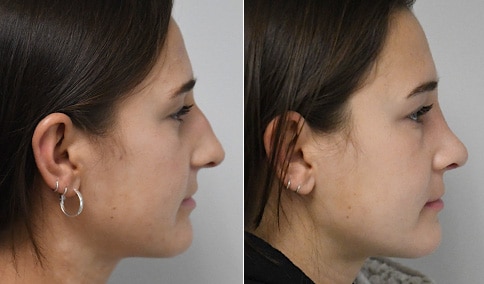
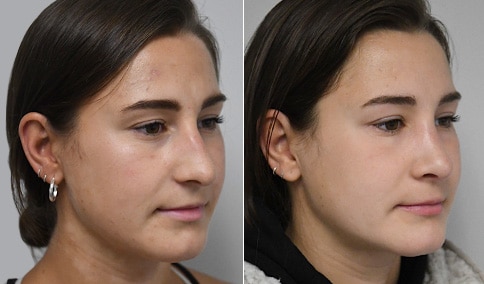
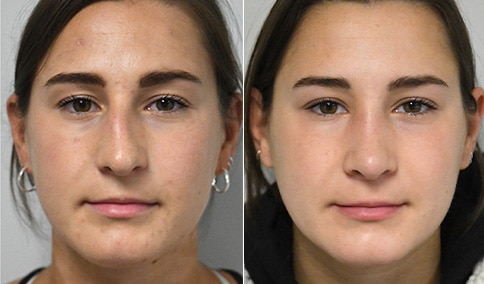
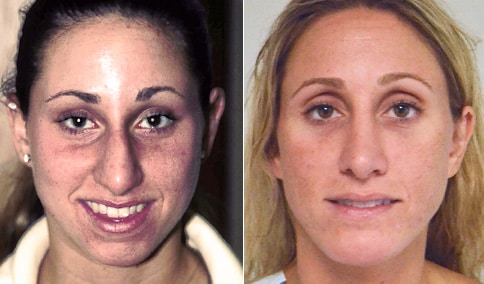
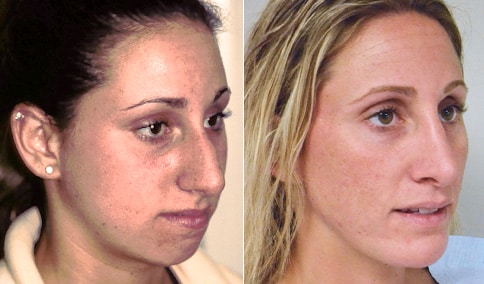
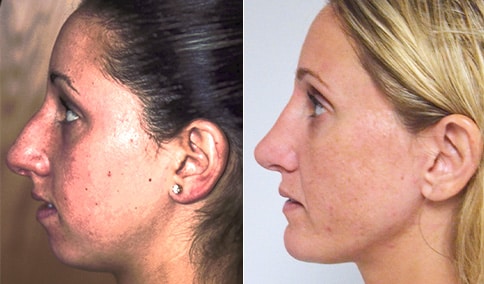
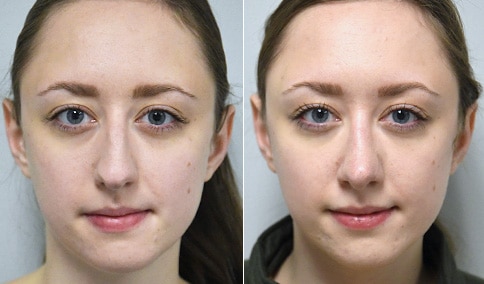
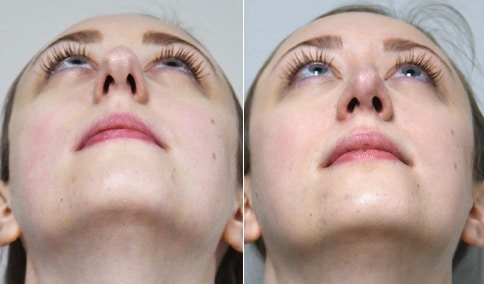
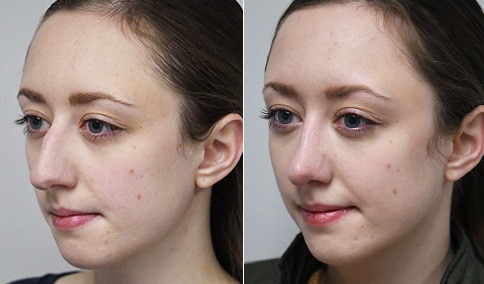
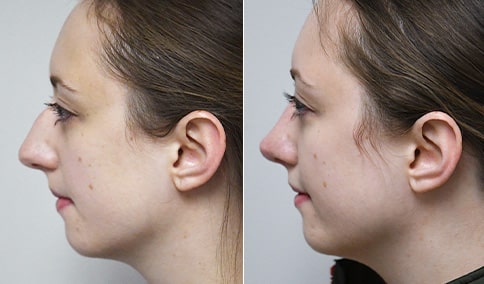
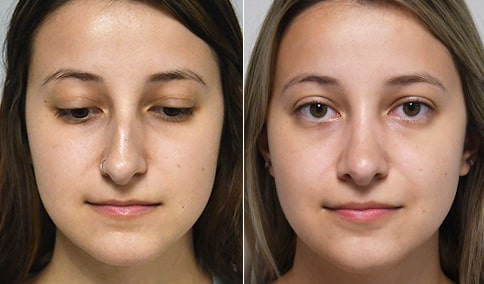
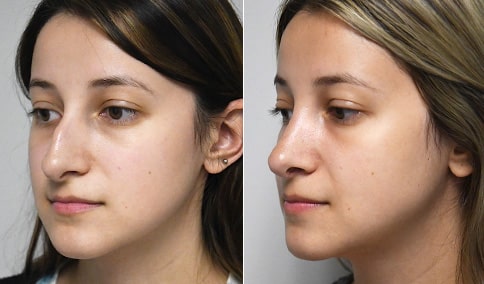
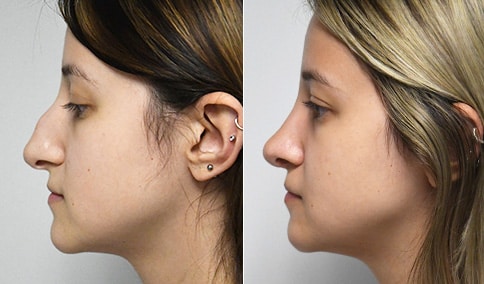
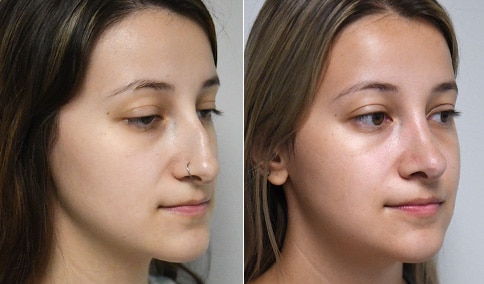





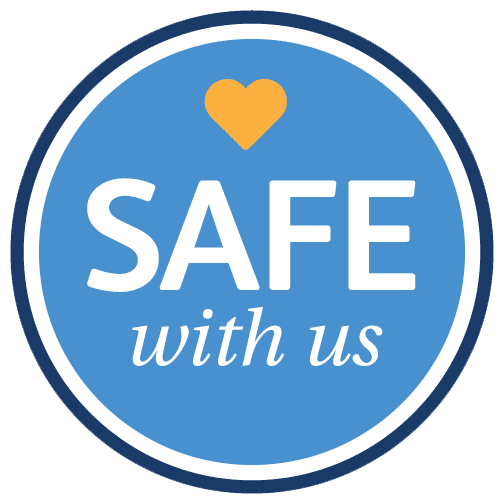
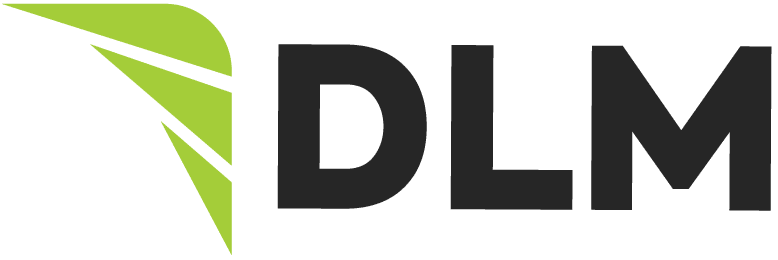
Cosmetic & Plastic Surgery Specialist
"I treat my patients like I would treat
- Jonathan D. Hall, MD, FACSmembers of my own family."
Schedule Consultation